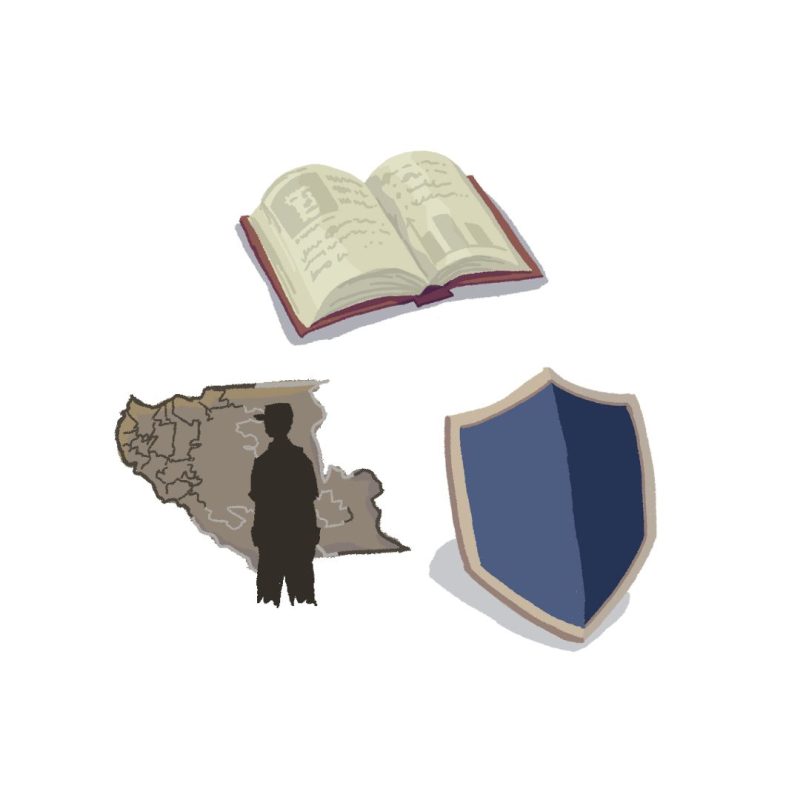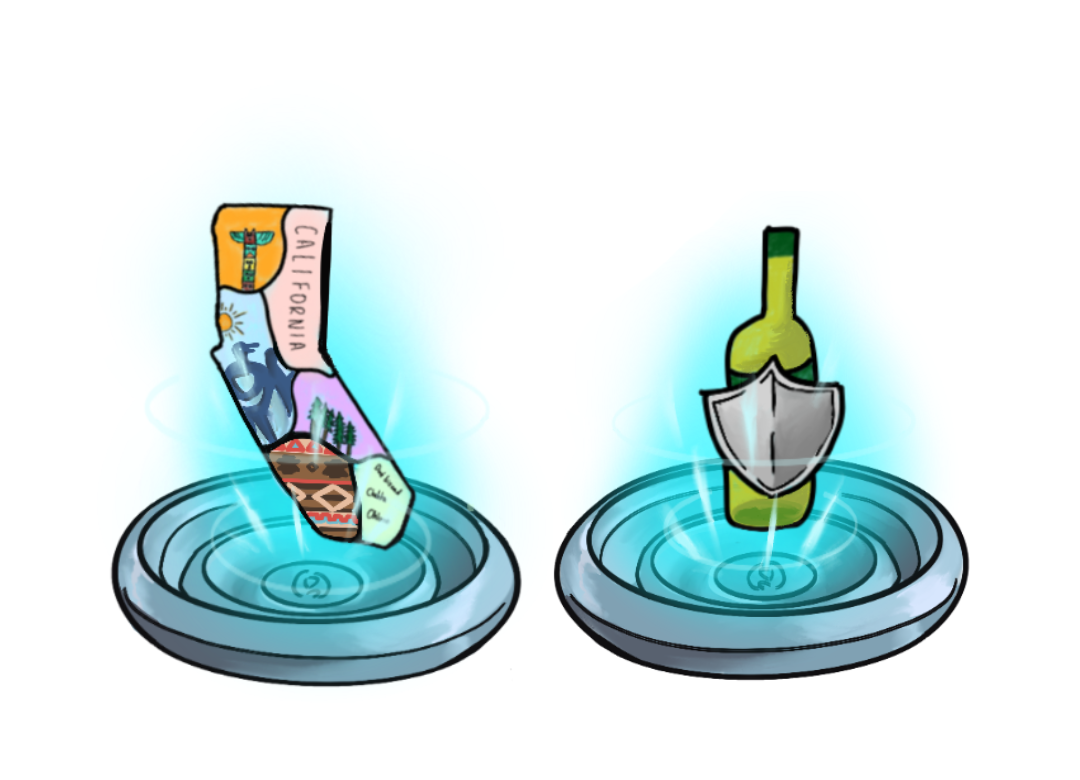Written by Anyi Cheng, Lisa Hao, Mikaela Wayne and Shannon Yang
“Are kids here getting to be kids?” The New York Times asked on Apr. 11, 2015 about Palo Alto in its article “Best, Brightest—and Saddest?” With high-achieving parents and a competitive student body, Gunn is known to retain an unhealthy amount of pressure. Many believe that the pressure comes from Palo Alto’s narrow definition of “success.” Because of pressure from academics, extracurriculars, peers, parents and Palo Alto norms, Gunn students have faced many struggles, but have also found sources of strength in friends, counselors and family.
Pressure of Palo Alto standards
Living in a city surrounded by Stanford professors and pioneers in many industries, some students feel like the idea of success in Palo Alto is warped. According to senior Yasmine Hamady, success seems to be defined by a high-paying job in science, technology, engineering and math-related fields. “I feel like there’s this [goal] in Palo Alto to be a doctor, an engineer or a lawyer,” Hamady said.
Hamady’s plan to major in theatre and deviate from the “standard” definition of success has provoked many discouraging responses. “My parents’ friends sometimes [tell me], ‘You should do it as a hobby. It’s not going to make you money,’”
Hamady said. “It’s those small comments that affect me a lot.” Senior Sarah Bullwinkle has also faced judgement when she decided to delay her college application to college due to mental health purposes. According to Bullwinkle, even people who know about her situation often cannot fully understand the difficulty of attending school. “I think when you’re not in the midst of a mental struggle, it’s hard to understand that things can be so bad that you can’t get out of bed in the morning,” Bullwinkle said. “You can’t even fathom doing an assignment.” Bullwinkle says many students do not seem to understand her decision to prioritize her mental health over her academic standings. “When I stopped caring about grades and the classes I’m taking, I got more pressure from people not under- standing that going through the motions of attending school can be hard for someone,” Bullwinkle said.
Students sometimes even question if her need for extensions are legitimate. After Bullwinkle received two extensions last year in Advanced Placement (AP) Biology, rumors spread that she was taking advantage of her situation in order to cheat. Although others may not realize the harmful implications of their words, the sly comments can affect one’s self-confidence. “People think it doesn’t affect you because it’s a small, non- chalant comment to them but when you’re struggling, it really can get to you,” Bullwinkle said.
Both Bullwinkle and Hamady agree that most of the aca- demic peer pressure stems from the competitive environment and the perceived accomplishments of their peers. “Since we live in a place where everyone is naturally extremely intelli- gent, the competition feels so much worse because the people you [will be] competing with in the real world are probably standing right next to you,” Bullwinkle said.
Academic stress
According to the U.S. News and World Report, Gunn is one of the top schools in the nation. Because of reputation, students often take on more than they can handle simply because there is an expectation to do so. For junior Victoria Stevens, it is something that affects her every day.
To many students, both the pressure to succeed and the pressure from seeing others succeed can lead to anxiety and a burdensome stress load. Stevens has struggled with academic stress and anxiety. “Throughout my entire life I have always been really, really passionate about everything and especially school,” Stevens said. “But once I went to Gunn, I don’t know what it was but everything dropped: my enthusiasm, my grades obviously. For me, the first year of high school was a mess because I was confused and stressed.”
Stevens’s stress was not only induced by the classes she was taking but also by other students who succeeded in more challenging classes while she struggled with classes that were considered less advanced. “You know that every single day
here people are taking incredibly advanced classes and are getting As in AP classes and have 4.0 GPAs,” Stevens said. “It makes you feel awful and everyone just expects that you live up to that standard.”
Mindfulness with extracurriculars
Besides schoolwork, students often participate in extracurricular activities to fulfill peer, familial or academic expectations. But to many, extracur- riculars are a means of escaping the prevaent pres- sures of school life. They can help alleviate student stress by allowing students to find their passions. Taking on too much, however, can lead to sleep deprivation and anxiety over packed schedules and overwhelming obligations.
Junior Angela Chin has danced since she was three years old. She has also attended Chinese class every week, taken art lessons, played piano and acted as the Class of 2017’s vice president sophomore year. Recently, however, she has real- ized that attempting to juggle everything took its toll. “When I don’t get enough sleep, my emotions just spiral and spiral downwards,” Chin said.
For Chin, sacrifices are necessary in order to achieve a harmony of being happy and being busy. This year, she chose to focus on one activity—dance—in order to maintain a healthier equilibrium. “I was more invested in dance,” Chin said. “[Quitting some things] actually helped me out a lot because now I can focus on just enjoying dance and doing well in school.”
Lack of emotional vulnerability
While academics and extracurriculars most directly frontloadstudent stress, emotional vulnerability is neglected as a result. Hamady says she often doesn’t talk to her friends about her problems because she fears adding additional stress to their lives. “I used to say ‘sorry’ to my friends that I’d tell my feelings to,” Hamady said.
This fear often prevents students from seek- ing help. Bullwinkle says she cannot talk to her friends if they’re in large groups because she does not want to ruin the mood. “There’s been times where I’ve been very alone because all of my friends have been out or in a big group,” Bull- winkle said. “I know I can’t talk to them about things; I don’t want to bother them.”
Hamady believes people are scared to be emotionally vulnerable because they are afraid of being judged. Instead of encouraging openness, people condemn it, she says. “Everyone’s like, ‘Oh my gosh, vulnerability is so dumb,’” Hamady said. “I believe vulnerability is beautiful.”
Bullwinkle says a supportive environment has been key to her rehabilitation. Her parents have encouraged her to focus on her recovery and find sustainable skills. “My parents have stopped pres- suring so much to do what all these articles say to do,” Bullwinkle said. “[Now], most of the pressure comes from finding positive coping skills. I’ve gotten happier since I’ve realized that if I stay committed, it’ll be better for me in the long run.”
Bullwinkle and Hamady believe the best advice is to be the beacon of positivity within a group and that people should first look within themselves. “I think I realized that the best thing for everyone is to work on yourself because when you’re a happier self, you can spread that to other people,” Bullwinkle said.
Mental health on campus
According to the 2013-2014 California Healthy Kids Survey, 27 percent of freshmen and 30 per- cent of juniors reported they had felt so sad every day for at least two weeks that they stopped their normal activities.
S/*ophomore Vidhu Navjeevan, who was diagnosed with an eating disorder last summer, says awareness of symptoms of mental distress are often overshadowed at Gunn is. “For depression, you normally think about someone who wears black a lot, who really doesn’t talk to people, but someone having depression could be that one person that always smiles,” she said.
Junior Tiffany Yang also has an eating disor- der, but because of the lack of awareness about the disorder, she was afraid to open up about her situation. “I didn’t hear a lot about binging and I thought I was the only one binging,” Yang said. “I don’t want to feel like an outcast, so I just decided not to expose myself.”
A major obstacle that prevents students from sharing their struggles is the stigma around men- tal illness itself, said sophomore Leah Sheynkman, who struggles with depression. “What I get a lot of is, ‘Everyone goes through these feel- ings. Everybody has hard times in their lives,’” Sheynkman said. “And no, not everybody feels suicidal on a daily basis.”
For senior William Copeland, high school brought about a combination of depressive disorder, anxiety, sleeping disorder and panic disorder. Though Copeland acknowledges that stigmas exist for a reason, he notes the particular negativity surrounding mental illness. “It just makes you seem like you’re unable to do things; you’re weak,” he said. “People treat it like it’s your fault that you have this stuff happening to you.”
Students further feel that others do not truly understand the impact of mental illnesses on normal parts of life. Sheynkman misses class on “mental health days,” when she stays home and does homework, sleeps, lays in bed or does whatever she needs for her health. “Usually my mental health days are the days I cannot deal with the world around me or I have absolutely no energy or no ability to talk to people or be around people,” she said. “Nobody here believes in mental health days. Everybody here’s just like ‘no, you can’t do that.’” Because of this, she says, she will tell teachers and her dad that she is simply sick on these mental health days instead of specifying her illness. Sheynkman believes, however, that teachers could be more proactive in understanding individuals’ different circumstances.
In Navjeevan’s case, it was hard to get help. However, Navjeevan’s friend had the same eating disorder and was able to share advice. “I think that in order to find the strength, you really just have to listen to your friends,” Navjeevan said.
For Stevens, the most important part of her journey was recognizing that she needed help. “I went to Adolescent Counseling Services and I talk to my friends all the time about everything,” Stevens said. “It was a really pleasant surprise to know that everyone was willing to help me.”
Besides spending time with trustworthy sources of strength, Copeland, who is pursuing music, encourages people to find a passion. “A lot of people say creative outlets are good and it lets you spend energy, but it’s more than that,” he said. “It gives you meaning and purpose.”
Yang encourages students to reach out to others. “Just don’t be afraid of talking to other people,” she said. “It doesn’t hurt to try, and all in all we’re all human beings; we all struggle with the same things. If we are kinder with each other, then we can spread more love.”













